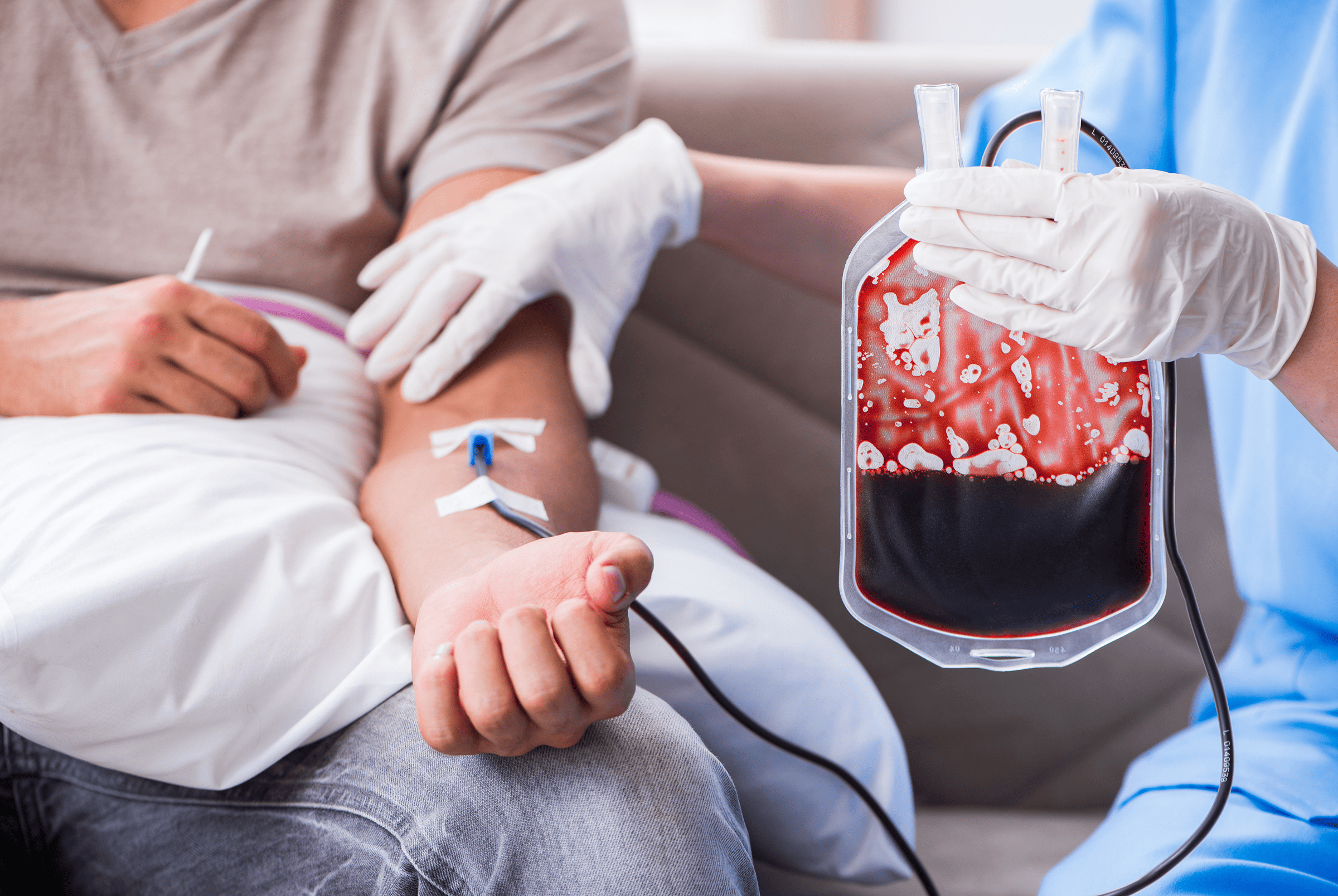
- Communication in Nursing: The Key to Quality Service
- Three Main Types of Communication
- Effective Communication in Nursing: Enhancing Therapy Outcomes
- Nursing Communication Techniques: Tools for Better Interaction
- Why is Communication Important in Nursing? A Critical Insight
- Communication Skills in Nursing: Building Patient Relationships
- Overcoming Barriers to Effective Communicating in Nursing
Communication in Nursing: The Key to Quality Service
Communication in nursing is the key to providing quality clinical care. Effective communication among nurses, patients, and the healthcare team ensures that individuals receive accurate information, proper treatments, and sufficient support. Proper nursing communication can improve satisfaction, reduce errors, and improve health conditions.
Key aspects of communication in nursing include:
- Active listening. To be cared for and allowed to have their conditions heard, the nursing staff needs to listen to the patient’s complaints to appropriately prepare a custom treatment plan.
- Clarity and simplicity. Using clear, simple language cuts down on misunderstandings. Healthcare providers should never use jargon but rather explain a procedure or medication using easily understood terminology.
- Non-verbal skills. Much trust is built with body language, facial expressions, and eye contact. A calm and peaceful approach will put the patients at ease.
- Empathy and compassion. The expression of empathy forms part of nursing care. The compassionate approach will help build a supportive relationship that will eventually result in confidence and cooperation.
- Team communication. This extends to the health care team. There should be clear communication among the nurses, doctors, and other professionals to ensure proper support is provided and that mistakes are not made.
Clear communication between visitors and nursing staff will help achieve an improved patient outcome, building better relationships and improving the experiences of those within the healthcare setting.
Three Main Types of Communication
Effective communication comes in various forms, and each is necessary for optimal clinical care:
- Verbal communication. These are talks between healthcare professionals and their patients. It makes use of simple language to limit misconceptions and mistakes.
- Non-verbal communicating. Consists of body language, facial expressions, and gestures. Helps in gaining the patient’s trust and makes them comfortable.
- Written correspondence. This is important in terms of proper documentation for ongoing care. Examples include electronic health records, notes, and reports.
Developing these three kinds of communication enhances individual safety, improves teamwork, and thereby increases better health outcomes.
Effective Communication in Nursing: Enhancing Therapy Outcomes
Effective communication in nursing gives the best markers of improved patient outcomes. It allows the nurse to obtain the necessary information and explain the instructions clearly to patients to make sure they feel understood. All these factors have a direct impact on the quality of service and the recovery process.
Key ways communication enhances outcomes include:
- Accurate diagnosis. Medical professionals use nursing communication skills to raise appropriate questions during the patient’s assessments for the identification of some critical symptoms and concerns. This leads to a more accurate diagnosis and targeted therapy plan.
- Clear explanation of the treatment plans. It may feel less daunting when explained clearly and in simple terms. For instance, explaining medications and risk factors to the patient and describing the proper use of medication diminishes the probability of missed dosages or improper response.
- Reduction in medication errors. Miscalculations or misunderstandings of dosages or instructions can lead to potentially devastating medication errors. Through clear and concise communication, healthcare professionals ensure the patient knows how to take the medication, which helps avoid mistakes.
- Improved patient engagement. Efficient communication in the healthcare routines directly empowers patients to be more actively involved. When the nurses welcome them to ask questions and state their concerns, it brings better compliance behavior in therapy conditions and a sense of responsibility.
- Improved mental well-being. By being empathetic, the nurses would have emotionally supported the patients, especially those in critical and long-term conditions.
By focusing on constructive communication, medical caregivers create a foundation of trust and understanding that ensures better clinical outcomes and overall patient care.
Nursing Communication Techniques: Tools for Better Interaction
Nursing communication techniques have an important place in improving interactions both with the patient and among the healthcare team through the exchange of information accurately, building trust, and reducing mistakes. Here are some strategies to build better communication nursing:
- Simple language. Nurses should speak plain, intelligible language when describing procedures or setting medication instructions. This can be helpful in making the patients more aware of care, thus minimizing confusion and mistakes.
- Use of open-ended questions. Nursing specialists can ask, “Can you tell me more about your symptoms?” will prompt the patients to give more elaborate responses, hence making their history accurate toward proper treatment and diagnosis.
- Reflection and summarization. Nursing professionals can reflect on or summarize the one’s words to confirm understanding. For instance, saying, “So you’re experiencing pain in your chest along with shortness of breath, is that right?” helps ensure some important details are not overlooked.
- Empathy and compassion. Showing empathy by acknowledging feelings helps boost trust, and the patients feel supported. Saying, “I can see you’re feeling anxious. Let’s talk about what’s bothering you,” helps build a good relationship.
- Documentation. Proper and clear documentation of interactions with the patient ensures stability while avoiding misunderstandings. The information regarding that particular condition was well communicated throughout the therapy team.
By recognizing the importance of communication in nursing and applying these techniques, better aid is given, fewer incidents of error are made, and patient safety is improved.
Why is Communication Important in Nursing? A Critical Insight
So, why is communication important in nursing? It directly relates to patient safety, treatment effectiveness, and overall care quality. Thus, good communication ensures that all necessary information is correctly conveyed, allowing better health results and an easier healthcare process.
- Patient safety. Most medical mistakes, such as wrong medication or performance of the wrong procedure, result from poor communication. Well-communicating nurses guarantee that instructions, concerns, and critical information are clearly stated to other healthcare team members.
- Effective patient support. Communication skills enable a nursing specialist to perceive the needs, symptoms, and concerns of their clients. It also allows medical professionals to make treatment plans personalized. Therefore, the results are most likely to be good. For example, a well-explaining RN about the instructions on medication will lead the patient to adhere to the regimen, thus quicker recovery.
- Building trust. When communication is proper, the relationship between nursing staff and patients becomes trustworthy. The care receivers will open up with essential information if they feel understood and valued, which may lead to better diagnosis and effective medication.
- Coordination across the healthcare teams. Nurses form an important part of the healthcare team. Good communication among the RNs, doctors, and other professionals ensures that all are on the same page regarding the treatment plan.
So, good communication is imperative for safety, effective service, and collaborative healthcare. Without it, quality nursing would be compromised.
Communication Skills in Nursing: Building Patient Relationships
Communication skills in nursing are essential for building trust and creating strong relationships. A nurse who listens to the healthcare recipient attentively, asks open-ended questions, and explains things properly can obtain vital information about symptoms, concerns, and needs. For example, a question like “Tell me more about your pain” will help the patient give detailed information that may not be possible with yes/no questions.
Clear communication in healthcare is vital in patient education. Nurses can explain treatment plans, medications, and procedures simply so patients understand their therapy.
Empathy also plays a key role in strengthening the relationships. A nursing specialist who recognizes the emotional discomfort with remarks such as “I know it is not an easy moment for you” helps to reassure and relax the client. It is the rapport formed that leads to greater collaboration.
Overcoming Barriers to Effective Communicating in Nursing
Good communication is essential in ensuring good quality care for the patients. Although some common barriers interfere with clear communication, a nurse can overcome them with certain strategies.
- Language barriers. The patient may not be able to speak the same language as the nursing specialists. In such cases, the medical attendant should use professional interpreters or translation services to ensure effective communication. Simple language and visual aids are also helpful.
- Cultural differences. Communication is important due to the differences in cultural beliefs and values. Healthcare specialists should teach themselves the concept of cultural competence and not let miscommunication happen. Respect towards different cultural norms develops trusting relationships and improves cooperation.
- Emotional barriers. A person may not be speaking clearly either because of some anxiety, fear, or discomfort. All these need a calm and friendly approach and empathetic communication.
- Noise and distractions. These are usually noisy or busy environments that make communication ineffective. The nurse should eliminate distractions and have the patient’s full attention during interaction.
Addressing such barriers will allow nursing providers to help improve communication and treatment outcomes, thus establishing a supportive environment.















































